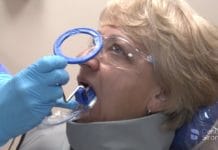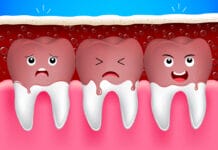In today’s day of insurance coverage for all, one would think everyone would have access to quality dental care. This is a myth. 28.2 million Americans remain uninsured1. This population will go without care, even when in pain, due to the cost of receiving that care. This is where low-cost dental clinics come to the rescue. When people have access to care they can afford, treatment becomes possible. Let’s take a look at what a community dental clinic can do to decrease the need for emergency dental care and how patients can transform their lives through health and knowledge provided by their local dental clinic.
What is different about a community dental clinic vs. a general practice office?
The community dental clinics addressed in this article are non-profit organizations that receive grants and donations from the local surrounding area to support low fees for uninsured patients. These dental clinics typically take all forms of Medicaid insurance and cash patients without insurance. A non-profit clinic like this does not take commercial insurance due to a conflict of interest under the 501(3)(c) status. Due to the nature of Medicaid reimbursement rates, these clinics are unable to support day to day operations from patient fees and insurance reimbursement rates alone. Grants and donations from the surrounding community are vital to the continued operations of the clinic.
What types of services do community dental clinics offer?
The services provided by a community dental clinic are focused on prevention. Clinics typically offer hygiene services, exams, radiographs, fillings, extractions, and dentures. Cosmetic treatment such as crowns, bridges, implants, and whitening are not covered. Because Medicaid dictates that root canal therapy is not a covered benefit, clinics do not provide this service either. Patients can, and do, receive complete dental health care through their local clinic though. Prevention and education are the keys to success for many people. If someone doesn’t know how to care for their teeth properly and have never had a cleaning before, how can they be expected to have perfect oral health? It has to start somewhere.
Comprehensive hygiene care, including scaling and root planning, can be performed at a clinic and covered under a low cash fee. Patients receive detailed education on the state of their oral health and ways to prevent further disease. Volunteer dentists are able to donate time and resources to complete fillings and extractions, decreasing local emergency room visits for dental pain. Dentures can replace missing teeth, giving a patient their smile and confidence back.
What is the greatest need at a dental clinic?
Dental clinics struggle to support their operations on fees and insurance reimbursements alone. As an example, a clinic can support 60% of their operations from the various Medicaid insurance option reimbursements and cash fee for service payments. The other 40% of the annual budget needs to come from community support. Dental supplies are expensive. They don’t replenish themselves, as many supplies are disposable. Filling material, instruments, disposable barriers and delivery products are all in great need. Equipment is often donated and can be many years old when the clinic gets it. Repairs are often needed, which can be expensive as well. But the caring people who work within the walls of these clinics are able to work with these challenges, often becoming skilled repairmen and women themselves.
Volunteers are also greatly needed. Local dentists wishing to give back to the community should look to their local clinic first. Often the first thought is to travel to a third world country and provide dental care to needy populations. The need in their own backyards in so great though, the first thought should be to start at home. They can feel good about helping their local communities decrease the need for emergent dental care by providing preventative care on a routine basis.
Dental hygienists can volunteer their time as well. Students that have recently graduated can gain valuable work experience and sharpen their skills. They can also receive another source of recommendations to help them kick-start their career while feeling good about the help they have given. Hygienists having a hard time finding full-time work can donate their time and know they are providing a crucial service to the people who need the most help.
How can I help?
If you are surprised by any of these facts and want to help your own community out, start by finding a local non-profit dental clinic. Contact them to discover what they need. Donate your time to the clinic by volunteering one day a month. Hygienists can make a great impact on a patient’s perspective of what “going to the dentist” means. They can show compassion and give the patients valuable education tools they can use for a lifetime to maintain their oral health, and ultimately, their whole body health.
If you don’t have the time to volunteer, you can round up extra supplies to donate to the clinic. Disposable supplies, older equipment that is still in working order, extra toothbrushes and toothpaste are all helpful items the clinic can use on a daily basis. Dentists can volunteer their time, giving whatever is convenient for them. Once a week, once a month, once every other month, any combination of time is greatly appreciated. You can give monetary donations or start a GoFundMe campaing to rally donations to give to your community dental clinic. Get creative! Any time you can support fellow citizens of your local community, you are doing great things.
What does the future hold?
The future is uncertain for the state of our health care system. It is unknown how many people will continue to be able to afford health insurance. It is also unknown which program will get cut next. In a society where some people have to choose between health insurance and putting food on the table, the need is great to have options for affordable care. Giving back to your community is a rewarding choice to make in this time of need. Helping another person gain a confident smile is something someone will remember for a lifetime. Community dental clinics need your help. Are you willing to lend a hand to help change someone’s life?
SEE ALSO: How to Make a Difference with Refugee Dental Care
DON’T MISS: 5 Thigns to Consider Before Recommneding a Toothbrush to Patients
Reference
- Robin A. Cohen, Michael E. Martinez, and Emily P. Zammitti, Health Insurance Coverage: Early Release of Estimates from the National Health Interview Survey, January – March 2017(Hyattsville, MD: National Center for Health Statistics, August 2017) https://www.cdc.gov/nchs/data/nhis/earlyrelease/insur201708.pdf












